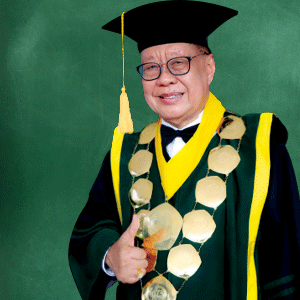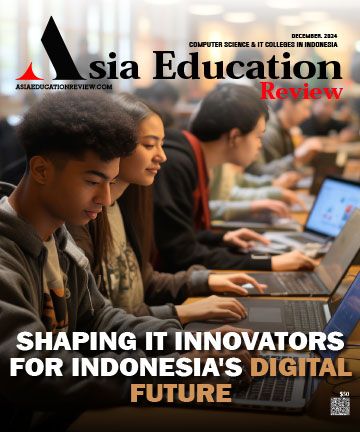Balitar Islamic University: Shaping Governance Leaders through Public Administration Expertise

Dr H SoebiantoroM.Si
Chancellor
In today’s evolving global environment, it is essential that colleges offering public administration and governance programs incorporate entrepreneurship into their curriculum to prepare students. Encouraging entrepreneurial thinking helps students innovate, optimize resource management, and collaborate with the private sector to tackle complex societal issues.
This approach enhances creativity and problem-solving, ensuring graduates are ready for traditional governance roles while driving impactful change and leading projects across various sectors. The Balitar Islamic University distinguishes itself as a unique institution by seamlessly integrating entrepreneurship with public sector education in its Public Administration and Governance programs.

Dr H. Supriyono, M.Ed, Vice Chancellor
Nestled in the cultural heart of Blitar, East Java, Indonesia, the Balitar Islamic University (BIU) is a symbol of academic excellence, entrepreneurial spirit, and public service. Established in 2003, BIU has committed itself to producing future leaders equipped with the skills, values, and knowledge to create meaningful change in Indonesia and beyond. A central part of this mission is its Public Administration and Governance programs, aimed at developing professionals capable of navigating the complexities of public sector management, governance, and community service.
Founded under Hidayaturrahman, SE, MM, Prof. Dr Ir. Zaenal Fanani, MS, IPU, Dr Drs. H. Hadi Siswanto, MM, and Dr Drs. H. Soebiantoro, M.Si., Drs. Tojib Soedjito, S.Pd., MM, the institution has grown remarkably over two decades. Despite being in a small city, the university now offers eight faculties and 21 study programs. Accredited by the Indonesian National Accreditation Board, this university is recognized as a ‘very good’ institution, leading private higher education in East Java.
The university’s focus on entrepreneurial development, community engagement, and international collaboration sets it apart from other universities in the region. “With a vision of being an entrepreneurial university, our university has actively cultivated partnerships across various sectors, including government, industry, and social organizations, to enrich the educational experience of our students and ensure that they are well-prepared for the professional world,” says Dr Supriyono, M.Ed, Vice Chancellor for Partnerships, Entrepreneurship and Student Affairs, BIU.
Public Administration & Governance Programs
BIU's Faculty of Social and Political Science houses the Public Administration and Governance programs, which are integral to the university’s educational framework. These programs are designed to equip students with the knowledge and skills needed to navigate the complexities of governance in modern society. The Public Administration program, in particular, focuses on developing competent professionals capable of contributing to both the public and private sectors.
The governance aspect of the program emphasizes the importance of leadership, organizational structure, and public policy implementation. Students are introduced to critical concepts such as transparency, accountability, and ethical governance, which are vital in today's globalized and interconnected world. This program aims to prepare graduates who can effectively contribute to the management of public institutions, non-governmental organizations (NGOs), and private enterprises,
prepare graduates who can effectively contribute to the management of public institutions, non-governmental organizations (NGOs), and private enterprises, ensuring that governance remains robust and aligned with societal needs.
Integration of Islamic Values & Entrepreneurship
One of the distinguishing factors of BIU’s Public Administration and Governance programs is their integration of Islamic values with entrepreneurial education.
As an Islamic university, this institute ensures that its students receive a holistic education that includes moral and ethical guidance based on Islamic principles. This is especially important in the context of public administration, where ethical leadership and governance play a pivotal role in societal development. In addition to Islamic values, BIU places significant emphasis on entrepreneurship.
In addition to Islamic values, BIU places significant emphasis on entrepreneurship. The university has a dedicated Entrepreneurial Learning and Career Center that offers courses and hands-on training in entrepreneurship. Regardless of their field of study, all students are required to take entrepreneurship courses to build foundational knowledge in business and management. Through student enterprises and startup incubators, the university fosters an entrepreneurial spirit among its students, encouraging them to become innovators and business leaders in their communities.
A Commitment to Pentahelix Collaboration
BIU’s approach to education is grounded in the concept of Pentahelix collaboration, a model that promotes cooperation between five key sectors: academia, industry, government, civil society, and media. This model allows the university to create a dynamic learning environment that goes beyond the classroom and prepares students to face real-world challenges.
By partnering with local government bodies, industries, and international organizations, BIU offers its students opportunities to engage in internships, research projects, and community service programs. For instance, the university has established partnerships with universities in India, Malaysia, and Australia, facilitating student mobility programs and collaborative research initiatives. These international collaborations not only enhance the educational experience but also help students develop a global perspective.
In the field of public administration, this collaboration is particularly important. Speaking more on this Dr. Supriyono adds, “We work closely with government agencies to ensure that its curriculum remains relevant and aligned with national policies and governance frameworks. This allows our students to gain practical insights into the workings of public institutions, preparing them for careers in government administration, public policy, and governance reform.”
Innovation in Education
As part of its commitment to educational innovation, BIU has embraced the Merdeka Belajar (Freedom to Learn) initiative, introduced by the Indonesian Ministry of Education. This program aims to provide greater flexibility in learning by allowing students to take courses across different disciplines and institutions. At this university, the Public Administration and Governance programs have been integrated with this initiative, giving students the opportunity to gain multidisciplinary knowledge and skills.
Balitar Islamic University empowers future leaders through innovation, entrepreneurship, and a commitment to community-driven education & governance
Through the Merdeka Belajar initiative, students at BIU can participate in internships, community service programs, and research projects, all of which contribute to their academic credit. This approach not only enhances their learning experience but also ensures that they are better prepared for the workforce. The flexibility of this program is particularly beneficial for students pursuing careers in public administration, as it allows them to gain practical experience in different sectors, including government, NGOs, and private enterprises.
Addressing Challenges
Despite its many strengths, BIU faces challenges in delivering its Public Administration and Governance programs, particularly in the context of digital transformation and evolving governance standards. One of the major challenges is keeping up with the rapid pace of digitalization in the governance sector. To address this, the university has implemented new procedures and technologies to enhance the governance of higher education. This includes the use of digital platforms for academic administration, research, and student services.
Another challenge is ensuring the quality of faculty and research output. As a private university, BIU must continually invest in faculty development and research infrastructure to maintain its high academic standards. The university has responded to this challenge by encouraging faculty members to engage in international collaborations and participate in professional development programs.
Making Education Accessible & Affordable
One of the core missions of BIU is to provide accessible and affordable education to students from all economic backgrounds. The university’s fee structure is designed to be cost-effective, with tuition fees significantly lower than those of state universities in Indonesia. This is made possible through philanthropy, as many of the university’s faculty members, including the Vice Chancellor, contribute to the university’s funding as philanthropists.
In addition to keeping tuition fees low, BIU offers various programs to help students support themselves financially while pursuing their education. These include internships, work-study programs, and partnerships with small and medium-sized enterprises (SMEs) in the region. By giving students the opportunity to gain work experience while studying, the university ensures that they are financially supported and well-prepared for the job market upon graduation.
In conclusion, Balitar Islamic University (BIU) stands out as a unique institution that combines Islamic values, entrepreneurial education, and a strong commitment to public administration and governance. With a focus on accessibility, innovation, and collaboration, the university prepares its students to become leaders in their fields, whether in government, business, or the non-profit sector. Through its Public Administration and Governance programs, BIU is not only shaping the future of its students but also contributing to the development of Indonesia’s governance and public policy landscape.
🍪 Do you like Cookies?
We use cookies to ensure you get the best experience on our website. Read more...





